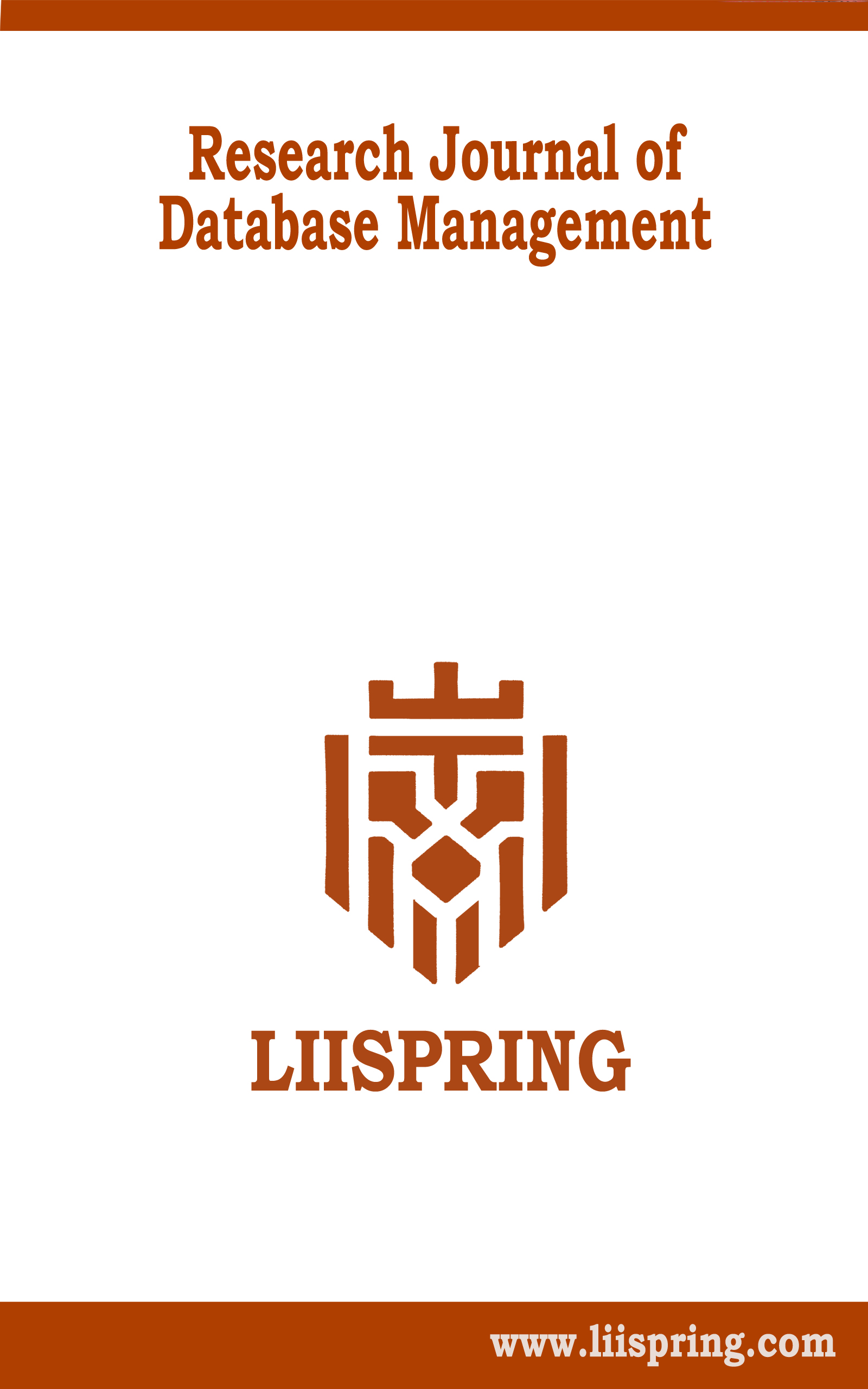-
About
The research Journal of Database Management publishes scholarly papers studying novel crucial contributions in the fields of General Computer Science. Journal of Database Management features novel academic documents which go through peer review by experts in the given subject area. The journal welcomes submissions from the research community where attention will be on the originality and the practical importance of the published research.
The research Journal of Database Management publishes original research on all aspects of database management, design science, systems analysis and design, and software engineering. The primary mission of JDM is to be instrumental in the improvement and development of theory and practice related to information technology, information systems, and management of knowledge resources. The journal is targeted at both academic researchers and practicing IT professionals. ? systems analysis and design, ? Semantic web and ontology?s, ? Knowledge modelling and processing, ? Sensor data management, ? Temporal, spatial and high dimensional databases, ? Database system and applications, ? Data warehousing and data mining, OLAP, ? Distributed ,parallel , P2P and Grid -based database, ? Emerging trends in XML technology, ? Digital libraries, ? Agile systems development, ? Bio-informatics, ? Cognitive modelling, ? Conceptual modelling, ? Data quality, ? Database for advanced applications, ? Database security and integrity, ? E-business and m-commerce models and architectures, ? Object oriented methods and methodologies, ? Software engineering, ? Web design methods and methodologies, ? Web database and Web-based information systems,
Editorial Policy
Most journals operate under the guidance of an editorial board, providing expert advice on content, attracting new authors and encouraging submissions. The Editorial Board, or (Editorial) Advisory Board, is a team of experts in the journals field. Editorial board members:
* Review submitted manuscripts.
* Advise on journals pospancy and scope.
* Identify journals for innovative social, scientific, economic & business problem based research and academic model, which they may guest edit.
* Attract new authors and submissions.
* Promote and present the academic journals to the scholars and academician, authors, institutions and peers etc.
* Assist the editor(s) in decision making over issues such as plagiarism claims and submissions where reviewers can’t agree on a decision.
Open Access Policy
This journal provides immediate open access to its content on the principle that making research freely available to the public supports a greater global exchange of knowledge.
Submission Preparation Checklist
As part of the submission process, authors are required to check off their submission's compliance with all of the following items, and submissions may be returned to authors that do not adhere to these guidelines.
* The submission has not been previously published, nor is it before another journal for consideration (or an explanation has been provided in Comments to the Editor).
* The submission file is in OpenOffice, Microsoft Word, RTF, or WordPerfect document file format.
* Where available, URLs for the references have been provided.
* The text is single-spaced; uses a 12-point font; employs italics, rather than underlining (except with URL addresses); and all illustrations, figures, and tables are placed within the text at the appropriate points, rather than at the end.
* The text adheres to the stylistic and bibliographic requirements outlined in the Author Guidelines, which is found in About the Journal.
* If submitting to a peer-reviewed section of the journal, the instructions in Ensuring a Blind Review have been followed.
Copyright Notice
Authors who publish with this journal agree to the following terms:
Authors retain copyright and grant the journal right of first publication with the work simultaneously licensed under a Creative Commons Attribution License that allows others to share the work with an acknowledgement of the work's authorship and initial publication in this journal.
Authors are able to enter into separate, additional contractual arrangements for the non-exclusive distribution of the journal's published version of the work (e.g., post it to an institutional repository or publish it in a book), with an acknowledgement of its initial publication in this journal.
Authors are permitted and encouraged to post their work online (e.g., in institutional repositories or on their website) prior to and during the submission process, as it can lead to productive exchanges, as well as earlier and greater citation of published work (See The Effect of Open Access).
Research Journal of Database Management
Front Page
